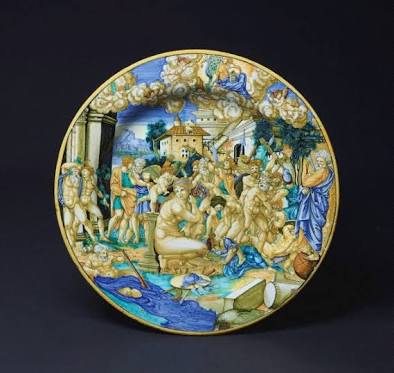While people in the English Renaissance wore different clothes and had no access to digital technology, their artistic expressions and the experiences these embody still have an impact on human beings living in the 21st Century.
The world as we know it today seemingly has nothing in common with the world during the English Renaissance however, upon further investigation it is clear that there are many core aspects of life that have not changed. Humanity has largely remained the same despite the fact that we have computers and they did not even have lightbulbs and the fact that we wear completely different clothing. Whether it be the Renaissance, the present or the future, people still love, fight, cry, mourn, scheme, manipulate, laugh and live. It is these actions and emotions which make us human and therefore, the expressions of these in art and literature are just as relevent to us today as the day they were written.
My very first blog for the semester was about the distinctivness of a feminine voice compared to a masculine one as demonstrated through Lady Anne. The mourning of Lady Anne continues to be emotional today as we have all felt loss of loved ones (although it is unlikely that it was due to murder!) The differences between men and women, while somewhat lessened by feminism, are still evident as we are different by nature. The continuing emotional impact of art from the Renaissance can also be seen through my creative piece based upon the plate painted by Xanto. I wrote a story about the wife of the leader of the Swiss Guard at the time of the sack of Rome by thinking about how I would feel if I were in the situation and applying these feelings to my piece. Once again, it is through emotions that the strong link between us and the people of the Renaissance becomes clear. Due to the pathos of Lady Anne’s speech as well as within historical events, it is clear that the art from the English Renaissance is still highly relevent today.
Poetry is a universal method of communication as it is based upon emotions which are the core of our being. Due to this, the poetry of the English Renaissance has a resounding impact upon today’s readers. The value of poetry is investigated in my post “Poetry: the Language of Life” which discusses the idea that history tells a story but poetry brings it to life. Due to a poet’s ability to manipulate language and emotions, their works become timeless as it is this emotion which connects us to people of the past. This is shown through the ideas presented by Sir Walter Ralegh in his poem, The Lie. This poem explores honesty and hypocrisy as he sees it in the world. Despite completely different political cultures, it is so profound that many of his complaints are so relatable to 2017. He points out hypocrisy within organisations such as the church- an issue still present today especially in relation to controversial investigations into some priests. The manipulation of emotions is also discussed within this poem through the comparison of love to lust. Again, this is still highly relevent to the present as people have always abused the emotions of others for ulterior motives. The continuing impact of literature concerning love is also demonstrated by the poetry at the beginning of Twelfth Night as explored in my post, “In Love an Agony”. The text investigates the different ways love can make us feel, in this case, pain. Love is, in many ways, the core of human existence hence, the experiences and values of people in the English Renaissance are not so different from our own.
Through the investigation of a variety of texts this semester, it has become very clear to me that despite the outward differences between us today and the people of the English Renaissance, we are, at our core very similar due to the emotions that connect us and make us human. The fact that the emotions of poets, authors and artists of the English Renaissance still relate to us today make it an indisputable fact that their work is still highly relevent to us in the 21st century and has had a continuing impact upon us.


